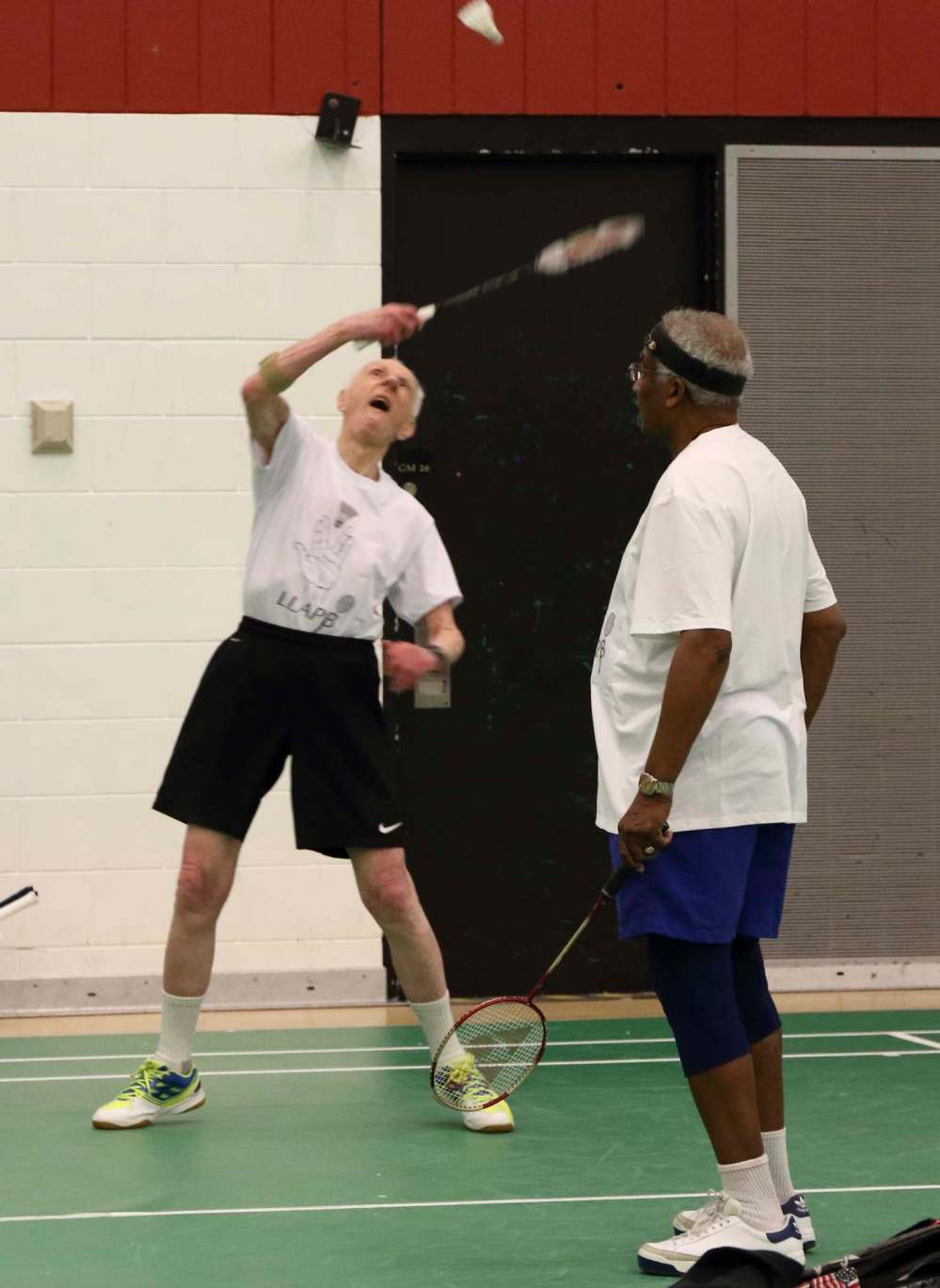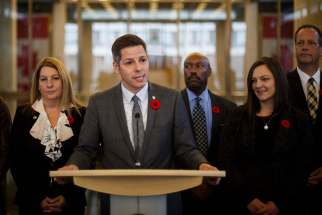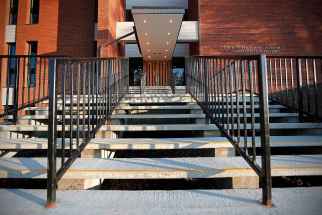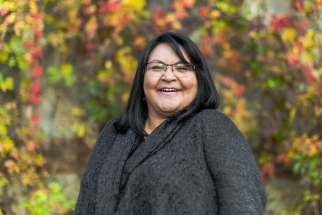Holocaust survivor a 90-year-old thriver Retired doctor who makes a racket about badminton earns provincial honour for role in sport
Read this article for free:
or
Already have an account? Log in here »
To continue reading, please subscribe:
Monthly Digital Subscription
$0 for the first 4 weeks*
- Enjoy unlimited reading on winnipegfreepress.com
- Read the E-Edition, our digital replica newspaper
- Access News Break, our award-winning app
- Play interactive puzzles
*No charge for 4 weeks then price increases to the regular rate of $19.00 plus GST every four weeks. Offer available to new and qualified returning subscribers only. Cancel any time.
Monthly Digital Subscription
$4.75/week*
- Enjoy unlimited reading on winnipegfreepress.com
- Read the E-Edition, our digital replica newspaper
- Access News Break, our award-winning app
- Play interactive puzzles
*Billed as $19 plus GST every four weeks. Cancel any time.
To continue reading, please subscribe:
Add Free Press access to your Brandon Sun subscription for only an additional
$1 for the first 4 weeks*
*Your next subscription payment will increase by $1.00 and you will be charged $16.99 plus GST for four weeks. After four weeks, your payment will increase to $23.99 plus GST every four weeks.
Read unlimited articles for free today:
or
Already have an account? Log in here »
Hey there, time traveller!
This article was published 05/11/2018 (2594 days ago), so information in it may no longer be current.
Dr. Stefan Carter lives in the same River Heights house that has been home for decades, he still drives his car and once a week — on Wednesdays — the wiry 90-year-old heads down to a local school gymnasium to play his favourite game.
He’s very serious about his badminton; but it wasn’t always like that.

Carter, who spent his professional life specializing in vascular medicine at the University of Manitoba, got turned onto the game in 1981.
“I guess I was working and with family and stuff and not active physically,” says Carter. “My neighbour at the time… we thought we should do something and for some reason, we thought about badminton. We thought about the University of Manitoba and then we heard about a club right at our junior high.”
The club, headquartered at River Heights School, has been a home away from home ever since.
“We went to play badminton and found it great to be active, and afterwards I felt invigorated,” he says.
“And then I was in my 50s — I could run, so I was running around and getting to the bird. Now I cannot do that, at least I don’t do that very well — that’s why I say I’m not an athlete. But I’m very pretty regimented. I do various things, a routine that’s good to a point. But I haven’t put in enough time doing the badminton exercises.
“I do stretching, but there is specific badminton footwork that you have to do and unless you do it a lot, repeatedly… somehow I haven’t done it enough. The people I know that are good players, they spend hours in the gym.”
‘It’s not because of my badminton skill, it’s not because I have done anything in organizing or volunteering badminton. There are dozens of people worthy of an award. It has to do with prolonged ‘participaction,’ and I’m the beneficiary. We all know that being active is good for us’
– Dr. Stefan Carter on receiving the Manitoba Badminton Association’s Sports for Life Award
Carter is modest about his skill level but he participated in the Canadian Masters Badminton Championships in Winnipeg last year and relished the competition, win or lose. He was the oldest competitor in the event.
On Wednesday night, the Manitoba Badminton Association will honour Carter with its Sports for Life Award, recognizing his contributions to the sport as an active player well beyond the age most would consider participating in any athletic pursuit.
Carter’s outlook is summed up nicely by the title of a book, recently gifted to him by one of his two sons: Age doesn’t matter unless you’re a cheese.

“It’s a wonderful thing — why I’m getting an award, I’m not clear,” he says. “It’s not because of my badminton skill, it’s not because I have done anything in organizing or volunteering badminton. There are dozens of people worthy of an award. It has to do with prolonged ‘participaction,’ and I’m the beneficiary. We all know that being active is good for us.
“We see it in the paper and radio but what’s not as well known, I think, there are a couple of studies that show that people who do racquet sports — a Danish study and a British study — that show people that play badminton live six years longer than sedentary people. And this six-year gain is about twice as much as people who cycle, swim or jog.”
Carter’s longevity and resilience have deep roots.
Born in Poland before the Second World War, he survived for years in the Warsaw Ghetto — where the death toll of Jewish residents is estimated to have been at least 300,000 — before emigrating to Canada in 1948.
His father, unaccounted for during the war, and mother, who disappeared after she was sent to the Nazi concentration camp at Treblinka, were never heard from again.
Carter chronicled his experiences in a book and he is featured in an exhibit at the Canadian Museum for Human Rights.
Now retired, he believes badminton has great potential to impact the well-being of regular folks everywhere.
You don’t need much to play — rackets and shoes are a minimal cost — and if you have a gym and badminton nets, you have all you need. Carter is a big proponent of the game and its benefits in a province where it is considered a fringe sport.
“It’s not that expensive, so you would think that health authorities and grassroots organizations would invest and support badminton,” says Carter. “Now I think there’s probably two, three thousand people who play badminton (in Manitoba)… So if half a million Manitobans played badminton, they would be doing what I’m doing — living on their own instead of being in doctors’ offices or occupying costly hospital beds or assisted living or nursing homes, which are very expensive.”
mike.sawatzky@freepress.mb.ca
Twitter: @sawa14

Mike Sawatzky
Reporter
Mike has been working on the Free Press sports desk since 2003.
Our newsroom depends on a growing audience of readers to power our journalism. If you are not a paid reader, please consider becoming a subscriber.
Our newsroom depends on its audience of readers to power our journalism. Thank you for your support.








